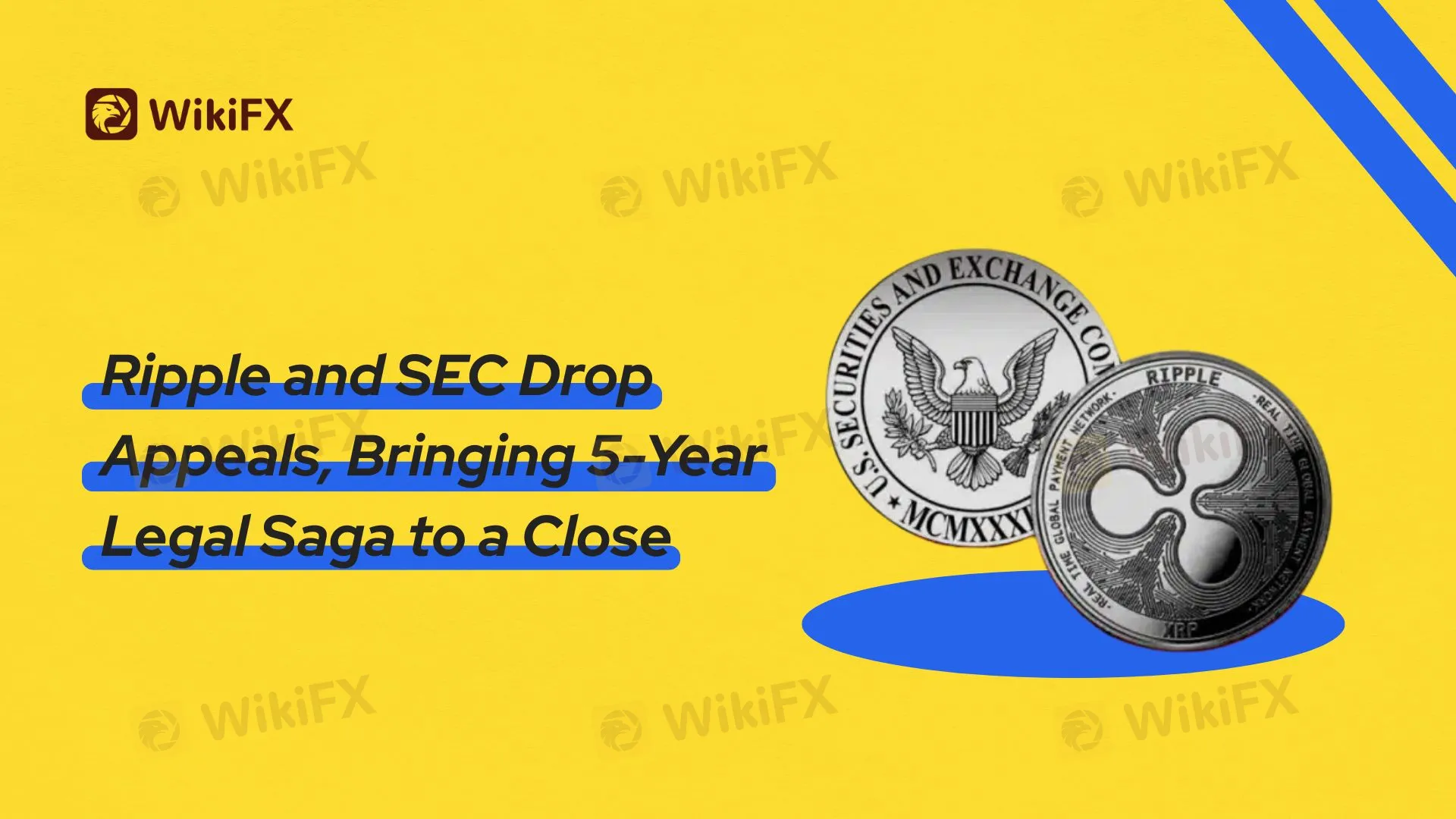Ripple and SEC Drop Appeals, Bringing 5-Year Legal Saga to a Close
Abstract:Ripple and the SEC have agreed to drop their appeals, ending a five-year legal battle over XRP’s regulatory status.

In a move that marks the end of one of the most high-profile legal battles in the crypto industry, Ripple and the U.S. Securities and Exchange Commission (SEC) have agreed to withdraw their respective appeals, effectively concluding a case that has shaped the digital asset regulatory narrative for nearly five years.
Ripple Opts for Closure Over Continued Litigation
On June 27, Ripple CEO Brad Garlinghouse announced via social media that the company would drop its cross-appeal challenging a previous court decision related to its institutional XRP sales. He also revealed that the SEC is expected to abandon its own appeal.
“We‘re closing this chapter once and for all, and focusing on what’s most important – building the Internet of Value,” Garlinghouse stated.
Ripples legal chief, Stuart Alderoty, explained that the court offered Ripple two options: proceed with its appeal and face prolonged litigation, or dismiss the appeal and finalize the case. The company chose the latter, signaling a strategic decision to end the costly and uncertain proceedings.
Background: A Landmark Ruling for Crypto
The SEC originally filed suit against Ripple in December 2020, alleging that the company conducted an unregistered securities offering by selling XRP tokens to institutional investors. In July 2023, Judge Analisa Torres delivered a nuanced ruling: XRP itself was not considered a security, and sales on secondary markets did not violate securities laws. However, the court did find that Ripples direct sales to institutions constituted unregistered securities offerings.
This split decision was widely seen as a partial win for Ripple and the broader crypto industry, offering critical legal clarity around token classification—especially for secondary market transactions.
Resolution Clears Path for Ripples Global Expansion
By dropping their appeals, both Ripple and the SEC bring a definitive end to the litigation. Ripple is expected to pay a civil penalty related to its institutional XRP sales, but the final settlement amount has yet to be disclosed.
Importantly, the outcome preserves the legal status of XRP as a non-security in most market contexts, allowing Ripple to resume growth initiatives without regulatory overhang in the U.S. The company now plans to shift its focus back to expanding global payment corridors, increasing utility of the XRP token, and driving adoption of its XRP Ledger technology.
WikiFX Broker
Latest News
Stablecoins go mainstream: Why banks and credit card firms are issuing their own crypto tokens
The Dollar Keeps Falling: How Should We View Exchange Rate Volatility?
Asia-Pacific markets rise as investors parse a slew of data releases
Asia-Pacific markets mostly rise as investors parse a slew of data releases
WikiFX Gala Night Malaysia Concludes Successfully
IG Group Unlocks Over £425 Million amid a Capital Reduction
Gold Prices Fall by INR 39,300 in the Last Week? What's Next Week's Outlook?
European stocks open slightly higher as UK-U.S. trade deal cuts autos, aviation tariffs
Treasury yields tick lower as Trump's spending bill in focus
European stocks mixed as UK-U.S. trade deal cuts autos, aviation tariffs
Rate Calc
